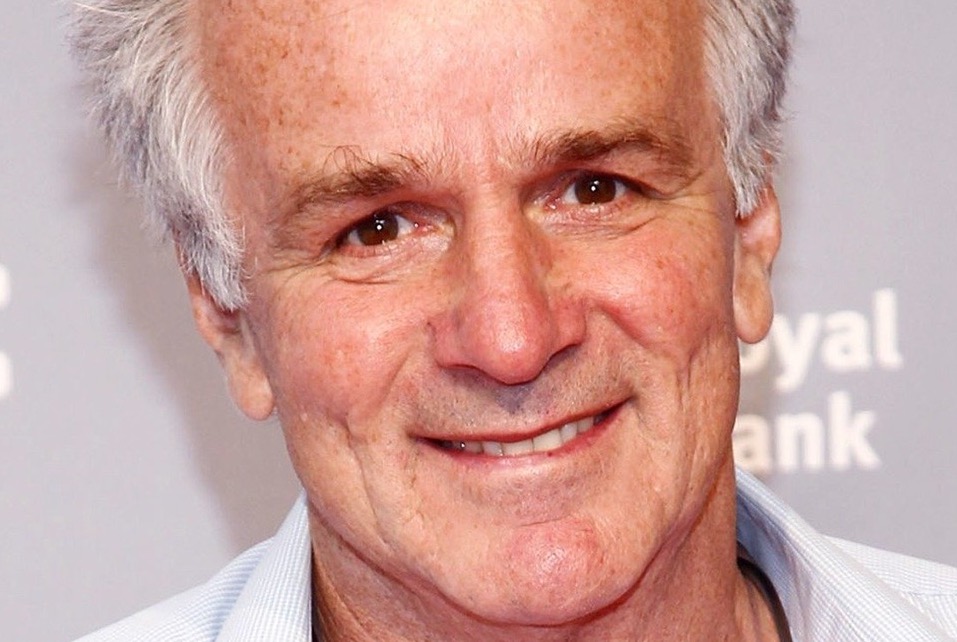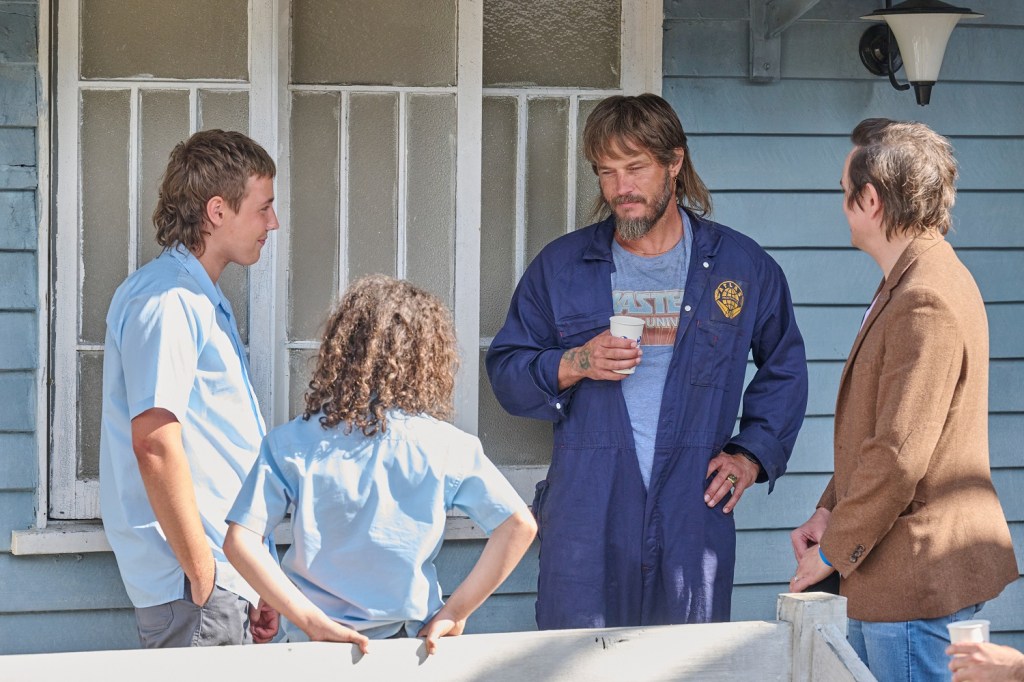by Jackie Keast IF Magazine February 14, 2023

If you can tell a story in the pub, you can write a film script: You just need to know the techniques.
So says Master and Commander, Happy Feet, Tanna and Hotel Mumbai scribe John Collee, who is emphatic that there is no “dark magic” to screenwriting. It’s a craft that can be learned like cinematography or directing. He even compares it to furniture making or architecture.
“I don’t think there’s any such thing as a born storyteller. Everyone tells stories. It’s in our DNA,” he tells IF.
Collee argues that for too long, Australia has undervalued culturally the role of the writer, particularly compared to the US and UK industries.
“It’s become a real gap in the Australian film and TV making picture,” Collee says, arguing screenwriting is not taught properly in this country.
“Traditionally Australian writing has just been, ‘Write a short film, then write a long film and see how you go by trial and error’. Even Peter Weir, the first director who I started working with, said he had no education in film writing. He went back to study film of his own volition after he’d made his first couple of movies, just to work out how it was done.
“I don’t think it’s been examined much in Australia, and obviously needs to be when you have a pipeline like Netflix and you want to start making a lot of local content. In the Writers’ Guild we’re lobbying Netflix quite hard to have an Australian content mandate in Australia, for Australian stories. But then you need to define what an Australian story is, and then you also need to teach people how to write.”
The Scottish-born screenwriter, novelist, journalist and former doctor tutored emerging writers via Netflix’s Grow Creative program late last year. Working with younger writers is something he is passionate about; he gives a lecture on writing for Hollywood at AFTRS annually and 20-minute version of much of his advice is up on Screen Australia’s YouTube channel.
Collee finds it inspiring to hear feedback from emerging writers, as it helps to examine the practice of writing and remind him why he does what he does.
“If you do a job all the time, then you, despite yourself, start to take shortcuts. You need to actually keep going back and reminding yourself why this is ‘this’.”
He also continues to work with directors at all stages of their careers. He recently penned short film The Story of Lee Ping, directed by Jasmin Tarasin, intended as a proof-of-concept for a larger feature. Following on from Hotel Mumbai, he wrote with Dev Patel and Tilda Cobham-Hervey short Roborovski, which the pair directed.
Of younger directors, Collee said: “I love their enthusiasm. They’re out there making stuff. The barriers to entry are very small now.
“You can actually now, with your iPhone, go off to some exotic place and shoot something that interests you. I love the freedom of that. In fact, a lot of big shot directors I know love it as well; they long to break free from all the hardware and money stuff. You actually don’t need that anymore. I’m longing for there to be a punk revolution where everyone gets that; people learn how to do filmic storytelling and just go off and do it.”
The Grow Creative workshops are an extension of Collee’s relationship with Netflix, having written upcoming Australian drama, Boy Swallows Universe, based on Trent Dalton’s semi-autobiographical bestseller.
Collee penned the review of the book for the Sydney Morning Herald back in 2018, calling it “without exaggeration, the best Australian novel I have read in more than a decade.”
He readily admits his review was his pitch to Dalton to adapt the book into a screenplay.
It seems to have worked: Collee has written all eight episodes of the series. His partners from the Hopscotch Features days, producers Troy Lum and Andrew Mason of Brouhaha Entertainment, produce.
The Boy Swallows Universe cast carries a hefty list of names: Travis Fimmel, Simon Baker, Phoebe Tonkin, Bryan Brown and Anthony LaPaglia, with Felix Cameron in the lead as Eli Bell.

At the heart of its story, Collee says, is “parents fucking up”.
“You don’t definitely have to write about what you know. You have to write about what you feel.
“If you’ve raised kids, as I have – my wife and I, our children are all grown up, they’re in their 20s, but you always feel, ‘Oh my God, I’m not equipped for this. I’m doing it really badly, I’m making all these mistakes’. And there’s something so touching about all of the adults in Trent’s book; he writes with such affection about his parents who are complete dropkicks as human beings. The first father is a heroin addict, the second father is an alcoholic, and the mother, there’s all kinds of anxiety issues. They’re all over the place. And somehow they create this loving family just by virtue of the fact they adore their children. That’s really what sucked me into it.
“But also I’d become so tired of Aussie crime drama, which a) glorifies crime and b) sees a virtue in grunginess. When I was working in development at Hopscotch, I kept saying to Troy and Andrew, ‘Anything but grungy Aussie crime drama’. It seems to me that Australians equate being nasty to each other with drama. That’s the simplest way to create drama, dramatic scenes, to have to have people being horrible. Actually, being nice to each other is really dramatic as well. It’s actually dramatic in a better way.
“So a book that actually took that trope of grungy Aussie crime drama about alcoholics and drug addicts and people living on the edge, and then turned it around so that it was magical and heartwarming and inspiring – I thought was just a really new kind of Australian literature, I really did.”
Like most screenwriters, Collee has a back catalogue of films that haven’t quite gotten across the line. However, in proof that not all that goes in the bottom drawer is lost, a film Collee wrote 25 years ago, The Return, has just gotten up with Ralph Fiennes and Juliette Binoche to star. Directed by Uberto Pasolini and co-written with Edward Bond, it is a retelling of Odysseus’ return home from war.
Collee has several other projects on the go, including the tentatively titled The Light Fantastic, based on Mani Bhaumik’s autobiography, Code Name God. Bhuamik, an Indian billionaire, grew up in poverty and went on to become a quantum physicist in America; his book deals with the link between science and spirituality.
Working with Collee on that project is director Jon Amiel, whom he previously worked on 2009’s Creation, and producer Jomon Thomas, whom he worked with on Hotel Mumbai.
After Hotel Mumbai, Collee was also hired by Middle East and North African media conglomerate MBC Group to write a project about a riot in Mecca, which he is currently researching, and still boiling away in the background is Phillip Noyce’s Rats of Tobruk, inspired by the director’s father and the Allied forces that held the Libyan port of Tobruk against the Afrika Corps in 1941.
What excites Collee at this stage of his career?
“The kind of thing that brings you into a world you didn’t know about,” he says.
“I see every film as a philosophical enquiry. The theme of it has to be personal to you, but what I’ve discovered is that in any story, you can insert a theme that is personal into it, and then that’s what gets you going.”